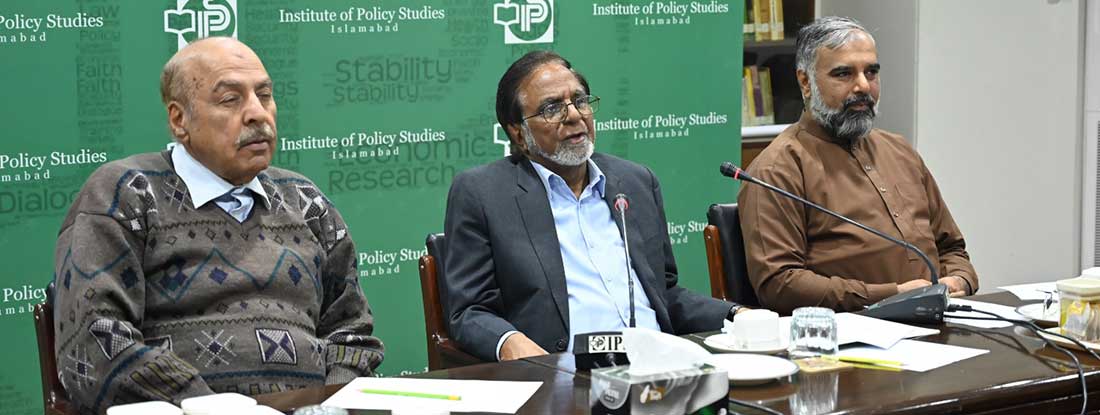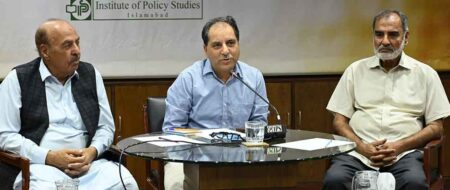Legal & Administrative Frameworks for Monitoring & Implementation of HR in Pakistan
Legal implementation, institutional strengthening needed to advance human rights: NCRC member
It is the primary responsibility of the state and its institutions to ensure the protection and preservation of human rights. This involves creating a conducive environment at all levels by enacting and enforcing laws, providing essential services, and capacity building of government institutions, law enforcement agencies, judiciary, and civil society organizations.
This was noted by Khalid Naeem, senior member, National Commission on the Rights of Child (NCRC), while delivering a presentation on human rights framework during a session titled ‘Legal and Administrative Frameworks for Monitoring and Implementation of Human Rights in Pakistan, with a Specific Reference to the Rights of the Child’ held IPS on March 6, 2024.
The session was joined by Syed Nadeem Farhat, research fellow, IPS, Prof Dr Shahzad Iqbal Sham, senior research associate, IPS, Dr. Yasir Aman ASC, Sehrish Saba Raja Advocate, and others.
The session was organized as part of a series under the Study Group on Socio-legal Legislation, a dynamic forum established by the IPS to generate debate and offer indigenous policy options for viable legislation in the country.
Emphasizing fundamental human rights, such as personal security, freedom of expression, and socio-economic rights, Naeem stressed the compatibility between Islamic principles and universally acknowledged human rights. This alignment reinforces the comprehensive understanding of rights and responsibilities within Pakistani society and underscores the importance of implementing international conventions at the national level. For that, the roles of various governmental bodies and institutions such as the Supreme Court HR Cell, Ministry of Human Rights, and provincial human rights departments are crucial, he said.
He further outlined key focus areas for the implementation of the Action Plan for Human Rights, 2016, including legal and policy reform, awareness and education, strengthening of institutions, and effective monitoring mechanisms. For instance, for child rights implementation in Pakistan, he cited the NCRC’s recent initiatives, including the launch of strategic plans and policy briefs, as pivotal steps toward realizing these goals.
Naeem said the roadmap for advancing human rights in Pakistan should focus on incorporating international legal provisions into national law, ensuring their local interpretation and meaningful implementation. He added that continued efforts must be made to ensure human rights protection for all, including legislative reforms, advocacy, and awareness-raising activities.
Additionally, there is a pressing need to bolster the role and oversight of parliamentary committees on human rights, fostering regular monitoring and building political consensus for the effective enforcement of related laws. Furthermore, he said ensuring periodic reporting of human rights in line with international protocols is important to track progress and address challenges effectively.
For child rights, regular efforts must be made to enhance the enrollment of out-of-school children and instill moral values among the youth, alongside addressing critical issues such as child beggary, drug use, abuse, child labor, early child marriage, trafficking, and online crimes against children.
Moreover, capacity building of government entities, law enforcement agencies, judiciary, and civil society organizations on child rights issues is crucial for ensuring robust protection mechanisms. Simultaneously, modernizing educational curricula at all levels to include comprehensive human and child rights education will foster a culture of awareness and respect for fundamental rights among future generations, he stressed.
In concluding remarks, Prof Shahzad Sham highlighted that Pakistan must be committed to fulfilling its obligations to safeguard human and child rights to ensure a nurturing environment where every child’s rights are respected and upheld, contributing to their well-being and development.












